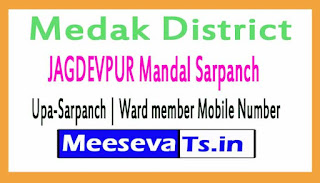This guest post is from Ryan Nguyen, a medical student who blogs at WhiteCoatDO.
“So tell me about PracticalPremed…”
It had only been two minutes into a medical school interview when the physician sitting across from me asked me about the blog I had started as a third-year undergrad. Her face showed a slight smile, conveying her curiousness on a topic that deviated from the usual questions on volunteering, ethics, and academics. For the next few minutes, I discussed why I started PracticalPremed and what I hoped to get out of it. The confidence and connection built with my interviewers from these talking points lasted throughout the interview. Two weeks later, a call came in from the Dean of Admissions, offering me a spot in their class.
Among all the decisions I made during college, starting a blog easily ranks among the top five (right besides playing innertube waterpolo, that game is friggin’ awesome). Blogging became a creative outlet, giving me the sanity to keep memorizing the steps of TCA cycle and pushing through those brutal five and a half hour practice MCATs. When filling out primaries, I listed blogging as one of my activities, but had no idea how much it could help me with the application process. By the end of the application season, blogging had played a key role in helping fill out secondaries, acquiring interview invites, tackling interviews, and even securing acceptances.
How Can Blogging Help Premeds Get Into Medical School?
Talking Points For Interviews
For each of my five interviews, blogging and social media were topics of discussion for at least 5-10 minutes (most interviews lasted around 30 minutes). As a topic I probably knew a little more about than my interviewer, blogging was something I could discuss with relative ease. From a strategic standpoint, this meant there was less “dead time” for me to squirm during ethical scenarios or for off-the-wall interview questions such as “which kitchen appliance would you say you are?” Yes, that is a real medical school interview question.
Displaying Initiative and Creativity
In early November, a guest post I wrote was featured on HackCollege, one of the most visited college blogs on the internet. The post became pretty popular, as it was shared over 140 times on facebook and 60 times on twitter, and so I put it into one of my update letters I sent to schools in November. Just a week and a half later, an interview invite came from one of those schools.
In the sea of tens of thousands of applicants (the AMCAS twitter reports 21,732 applications submitted as of July 17th), blogging provided a unique way for my application to stick out beyond the usual GPA/MCAT/extracurriculars criteria. The website for my medical school states they desire an applicant who “demonstrates excellent verbal and written communication skills,” and so blogging became a natural way to display such skills.
Learning Responsible Social Media Usage
Between facebook, twitter, and the epatient movement, the rise of social media holds unforseen implications for the future of healthcare. A 2006 paper states that 18% of adult internet users go online to find healthcare information for themselves or others and that health searches are one of the more popular uses of the internet. And as not everything on the internet is 100% true (someone would really lie on the internet???), physicians have the unique positions of combating misinformation with their knowledge of evidence-based medicine. One such example is Dr. Howard Luks, an orthopedic surgeon who has embraced social media and posts informative medically-related articles on topics such as degenerative joint disease. Thus, an underlying theme I employed throughout my application is that I would use my skills in social media and blogging to meet patients where they were at (i.e. searching for health information online) in order to advocate for evidence-based medicine in the online world.
At the same time, many of today’s health care leaders are also wary of the dangers of social media and HIPAA violations. KevinMD features a great post on steps physicians are taking to stay careful on social media. Blogging as a medical school applicant was also a challenge in constantly being aware of the nature of published content. The knowledge that an admissions committee member could be looking at my site at any moment pushed me to maintain a sense of professionalism. Developing these skills as a premed will hopefully give future doctors the time to develop effective and professional writing skills by the time they are healthcare professionals.
Offsetting Costs Through Side Income.
With application fees, flight tickets, hotel fees, and acceptance deposits, applying to medical school is a costly endeavor. And I don’t want to even get into the six-figure average indebtedness that medical school graduates are facing in the US. In this post, Steve details how his total costs during the application year totaled $6,024 (and that’s with the $4,290 he was able to save). One of the beautiful things about blogging is the ability to convert website traffic into side income. In the past two weeks, PracticalPremed has generated $53.44 through a combination of affiliate programs and Google Adsense. While not a ton of money compared to my student loans (sigh…), it still is income that will be coming in when I’m eating, studying, sleeping, and studying some more. Now if only I could get some sponsor to pay for all of my tuition for the next four years…
For the past two years, Ryan has been blogging over at PracticalPremed. Now an upcoming first-year medical student at WesternU COMP, he runs WhiteCoatDO to document his perilous attempt at navigating medical school and beyond. Get in touch if you’re interested in starting your own blog!




















